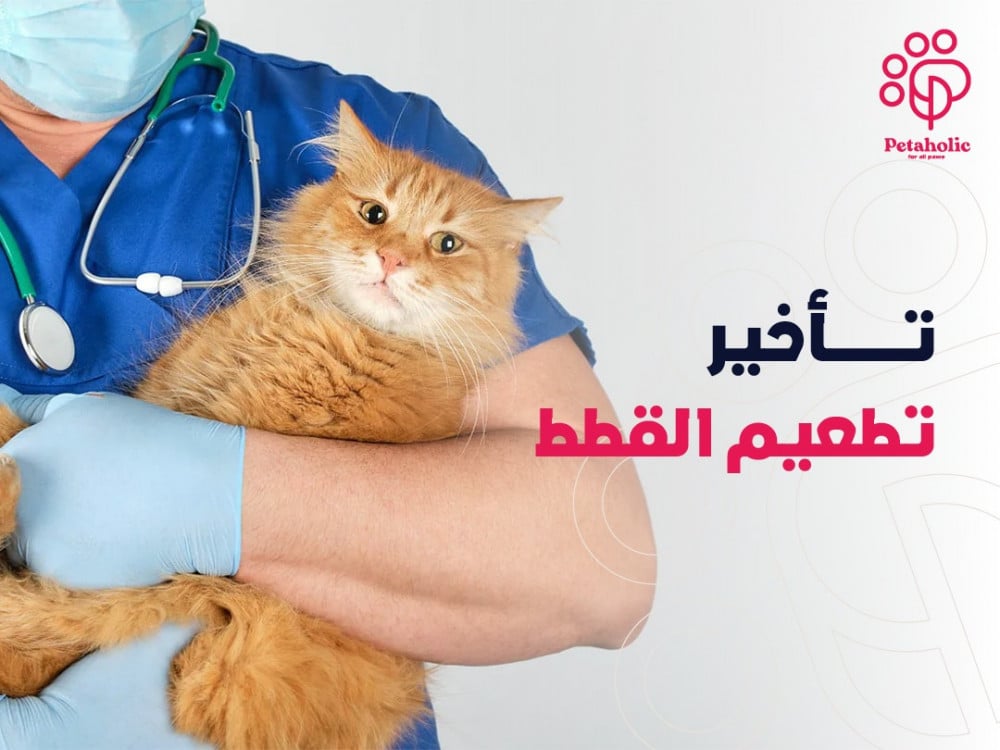
Vaccinations expose your cat's immune system to a certain type of infection. This activates the white blood cells to start producing antibodies to fight off the diseases that invade her body. Therefore, it is beneficial to vaccinate your cat, especially when he is young. However, not many people think that cat vaccinations can be beneficial. So let's discuss what might happen if the vaccination of cats is delayed and the harm this will have on the cat and its breeder as well.
What are the effects of delaying cat vaccination on your cat? Are vaccinations necessary or not?
Like it or not, your cat will be more susceptible to various viruses if you don't get her vaccinations on time. It does not matter to you if the cat is domestic and does not go out into the street. These microscopic killers enter your home and find their way to your pet cat. Therefore, if you do not protect them with vaccinations, you will put them at risk of contracting diseases. Since it does not activate antibodies to fight off the infection, it will only leave it to deteriorate, with usually fatal results! Thus, cats can contract a number of diseases if they do not receive these vaccinations. These diseases are:
Feline immunodeficiency virus
Also known as feline AIDS, this virus is a serious, lifelong disease transmitted by unvaccinated cats. This disease leaves cats vulnerable to opportunistic infections because it damages virus-fighting white blood cells. To this day, there is no known cure for feline AIDS, but it can only be prevented through vaccinations.
Bordetella
Bordetella is a less serious bacterial infection spread among cats. This disease is difficult because the bacteria can live on shared surfaces, such as food containers, for weeks. Cases are usually mild, but they can be serious for cats in general, and immunocompromised cats in particular. Treating Bordetella is difficult due to its resistance to many common antibiotics. Therefore, prevention is better than cure.
chlamydia
Chlamydia is another bacterial infection that vaccinations help prevent. Symptoms of this disease include eye infection, sneezing, and infertility. These bacteria can also infect humans and cause eye infections, although this is uncommon.
Feline infectious enteritis
This disease is caused by infection with something called feline parvovirus, which is sometimes known as feline leukopenia. Because it leads to a decrease in the number of white blood cells. It is one of the greatest disease hazards in cats, and it is often fatal very quickly. Also, this disease can live in the environment for years, and it cannot be eradicated with disinfectants, so vaccination is necessary.
Cat influenza (feline herpesvirus and calicivirus)
These two vaccinations are given together because between them they form the upper respiratory disease known as cat flu. There are no antivirals to treat this disease, and it can cause serious damage, and in some cases it can even be fatal, especially in cats and those with underlying conditions. Even mild cases can lead to permanent damage to a cat's eyes, often to blindness.
One of the most serious consequences of delaying vaccination of cats is rabies
Rabies is perhaps the most terrifying disease that an unvaccinated cat can contract. What's more, cats are more likely to contract rabies than any other pet. This disease also poses a threat to human health, and it is always fatal to all creatures that contract it.
There are other infectious diseases that unvaccinated cats can contract, such as calicivirus and herpes virus. Because they are spread by airborne particles, upper respiratory infections can pass quickly from one cat to another. All of these diseases can be prevented through cat vaccinations.
To prevent disease and keep your cat healthy, we recommend:
What are the harms of not vaccinating cats to humans and the diseases that can be contagious to them?
Some diseases can be transmitted from cats to humans in the event that the cat is not vaccinated or the vaccination of cats is delayed. These diseases are called zoonotic diseases. Therefore, we highlight them so that you can practice preventive strategies and vaccinate your cat to prevent them.
toxoplasmosis
Unvaccinated or delayed-vaccinated cats are usually carriers of a single-celled organism called Toxoplasma gondii. Cats may not show signs of illness, despite passing the organism in their stool. People become infected through accidental hand-to-mouth transfer when handling cat feces, so you should clean your hands after you clean your cat's litter box as well, and wear gloves while cleaning if the cat is not vaccinated. This disease is more dangerous for pregnant women who have not been exposed to the infection before, and were exposed to it while working, as the effects on the fetus can be dangerous.
Hookworms and roundworms
The worm eggs can be passed in the feces of unvaccinated cats and infect humans. Hookworms enter through human skin and infect them. For example, a person who walks barefoot in sand contaminated with cat feces infected with worms. Accidental ingestion of worms can also lead to infection of internal organs in humans. Therefore, in addition to making sure not to delay vaccinating cats and taking deworming shots on time, get rid of cat litter daily. Here are some other preventive measures:
- Wash your hands well before cooking or eating.
- Do not allow children to put dirty objects in their mouths.
- Be careful not to delay the vaccination of cats, and take your cat's vaccinations on time, while conducting the necessary periodic examinations of the stool to ensure that it is not a carrier of infection.
ringworm
Ringworm is a skin disease that can be transmitted from cats to humans, but it is not transmitted by worms. Instead, ringworm is caused by a skin fungus, so named because the infection causes circular skin lesions in humans. Unvaccinated cats that get ringworm usually have scaly patches of skin with hair loss. The infection can be picked up from the environment or from other infected cats. Immunocompromised people, the young, and the elderly are most likely to contract ringworm from cats. Sometimes prolonged treatment with oral and topical medications, as well as environmental decontamination, is required to clear up the disease in cats. The best solution to avoid this disease is to vaccinate your cat on time.
Among the premium products we offer at Petaholic to help you keep your home clean and prevent your cat from catching any infections are:
Finally, make sure to clean your cat's litter box immediately, keep your hands clean, and most importantly, make sure that your cat takes regular periodic vaccinations to reduce risks. Because we at Petaholic care about the health of your pets and your health as well, we have provided you with all the animal supplies that help you and your family stay safe. Protect your family and your pets as well with our healthy, high-quality products at an affordable price.
You may also be interested:

